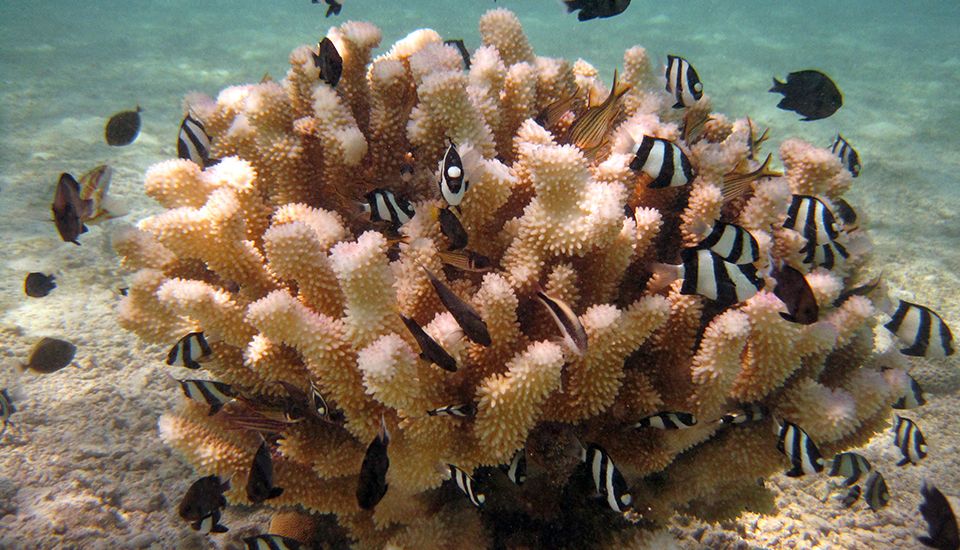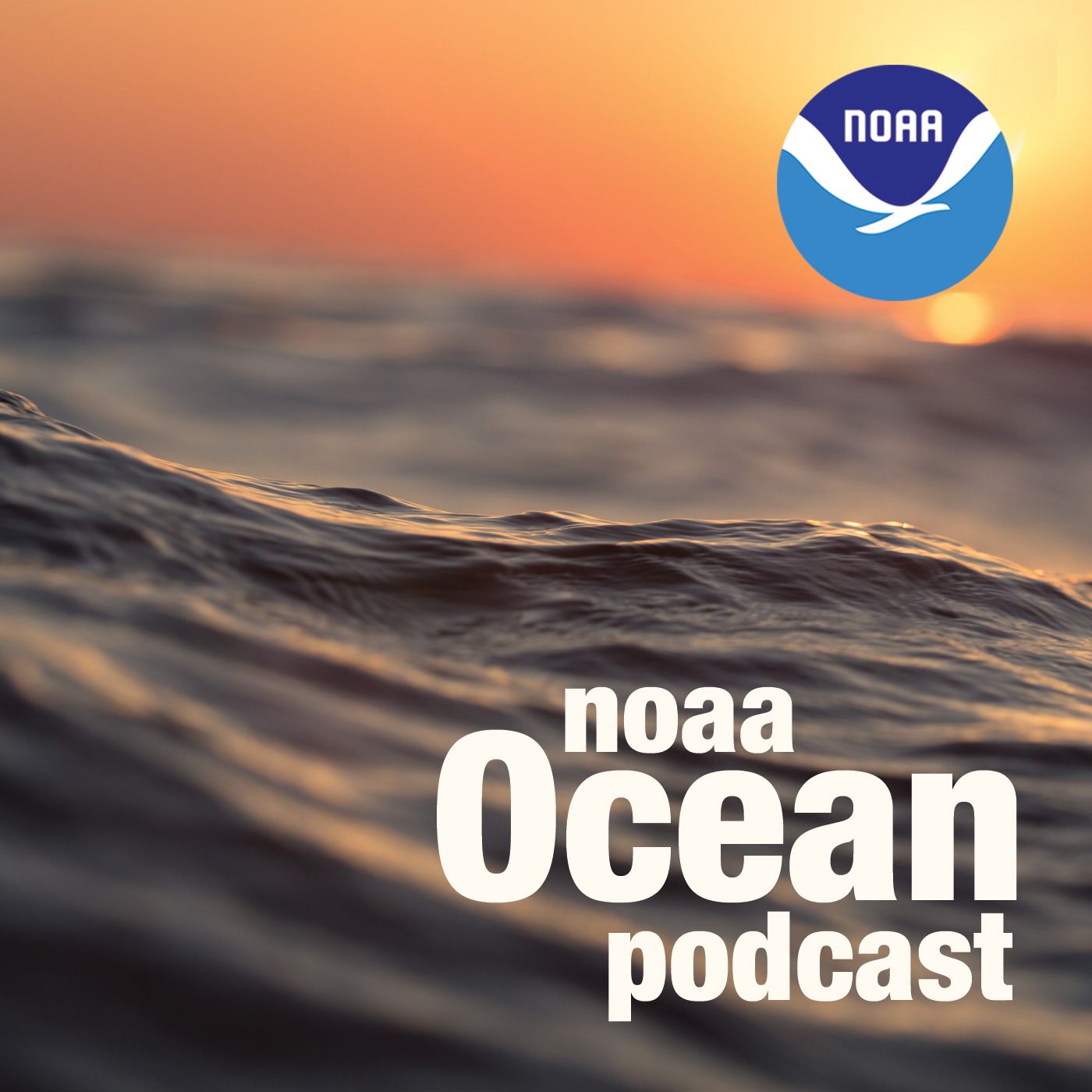Reef Resilience
NOAA Ocean Podcast: Episode 10
It's time for a NOAA Ocean Podcast "Science Moment," where we sample the best segments from our past full-length podcasts. In this episode, learn about how coral reefs respond to stressful events like coral bleaching.

Coral Community
Several species of reef fish nestle in a cauliflower coral in American Samoa. If local threats are reduced, coral reefs have a greater chance of surviving a larger climate event, such as bleaching.
Transcript
Host: It's time for a NOAA Ocean Science Moment! I'm Kate Nielsen and in today's science moment we'll talk about coral reef health, specifically how reefs respond to stressful events like coral bleaching. Listen in as we revisit an earlier interview with Britt Parker from NOAA's Coral Reef Conservation Program.
HOST: Britt, to start off, can you share with us some of the threats our coral reefs are facing today?
BRITT PARKER: Sure. We think about threats kind of both locally as well as globally. So some of the local threats we're really concerned with are things like unsustainable fishing practices or land-based sources of pollution, this could be both things like fertilizers and excess nutrients as well as sedimentation, so run-off from the land. We're also very concerned with the global threats related to carbon dioxide in the atmosphere including global climate change and the warming of both the atmosphere and the oceans and ocean acidification which is a related problem. And so all of these things, both on their own as well as taken together, can have great impact on the health of coral reef ecosystems around the world.
HOST: Great, thank you. In the introduction, I mentioned how we're going to talk a little bit today about how reefs respond to stressful events, like coral bleaching. Just to get everybody on the same page, can you tell us what happens to a coral when it bleaches?
BRITT PARKER: Certainly. So one of the main impacts of climate change again that increasing atmospheric and ocean temperatures is something we call coral bleaching. Coral reefs as an organism actually have these tiny algae called zooxanthellae which live within their tissue. And when a coral is exposed to temperatures above the normal warmest temperatures its use to, especially when conditions are really hot and still and lots of high intensity light, the coral will actually eject those algae. And the problem with that is that those algae are actually the source for much of the food and nutrients that the coral requires to survive. So, in this case, the stressful event that we're talking about, this coral bleaching, if the coral are in these conditions where they are bleached and these last a long time, then the coral can actually starve and die.
Host: Britt, is it possible for a coral reef to recover from a stressful event maybe coral bleaching like we talked about or another one of the threats you mentioned from your first response?
BRITT PARKER: Absolutely. It is possible for a coral to recover, and in fact it's also possible in some cases for them to resist the event and not bleach or not bleach as badly. So, when I think about this, I like to think about our health as human beings. When we are under really stressful conditions—we haven't gotten enough sleep, we're not eating well, we're not exercising, work's tough, there's a lot going on with family—and we're exposed to a cold virus or something similar, we can get pretty sick from that, be kind of down and out for a number of days. But if conditions are really good for us and we're not really stressed, we may actually not get the virus once we're exposed or we may only have a small cold that only lasts for a couple days.
And so, coral reefs are very similar in that, if conditions are right, they have good water quality, we've taken care of those land-based sources of pollution and sedimentation, if they have the right types of fish on the reef (and we can go into that a bit later), but we've controlled some of the unsustainable fishing practices, even though a coral is exposed to higher than normal temperatures and might bleach, once those thermal stress subsides and water temperatures go back to normal, it actually can recover. And it has the best chance of recovery when all other conditions are optimal for reefs.
Host: We hope you've enjoyed this NOAA Ocean Science Moment! If you liked this podcast and want to hear more, search for The NOAA Ocean Podcast in your podcast catcher of choice or visit oceanservice.noaa.gov.
From corals to coastal science, connect with ocean experts to explore questions about the ocean environment.
Subscribe to Feed | Subscribe in iTunes
Browse All Episodes of the NOAA Ocean podcast